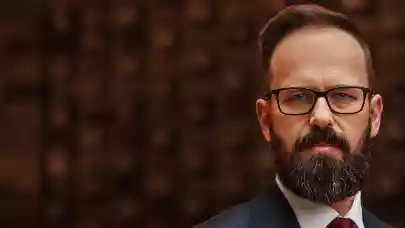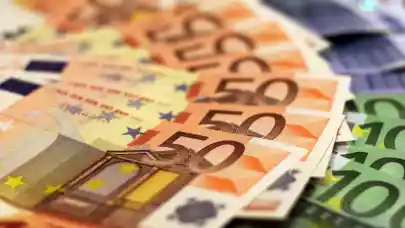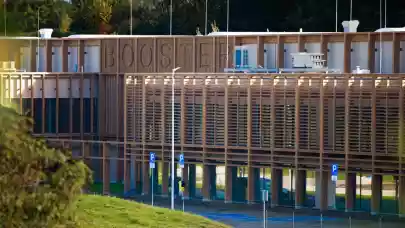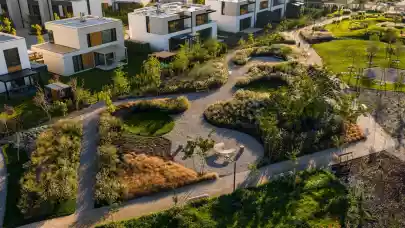
To be a small and dynamic company, which makes decisions quickly based on consensus and its own analysis and reasoning. These are the secrets to being the most active investor in Prague even in the past two difficult years, according to Českomoravská Nemovitostní (ČMN’s) new CEO, Karel Bor, who talked to Property Forum about the company’s investment strategy.
Prior to joining ČMN at the beginning of this year, you spent almost six years on the advisory side. What are the main lessons that you have taken from that experience?
I had begun consulting back in 1997. In total, I spent 12 years on the consultancy side, with breaks in between. Over the last thirty-plus years, real estate consultancy evolved tremendously in the Czech Republic. It's nice to see the number of real professionals that have grown up in the industry and what the overall level of consultancy in our country is.
There have been more fundamental lessons, but the professional scope of this work, in general, is definitely what has given me the most. The teams of advisers are made up of real experts in investment and property valuation, as well as civil engineers, project managers and, most importantly, pragmatic brokers who build their work on business skills and market knowledge. And then, of course, I was very much influenced by the dynamics of the environment where you're working with a traditional business, you're servicing clients and your mantra is the word "commission". I've also dealt significantly with management work in recent years. Consulting is very people-based, so there has been a lot of work, experience and new impulses in the last six years.

Karel Bor
CEO
Českomoravská Nemovitostní
ČMN has been probably the most active office investor in Prague during the last few years, even during the pandemic when many investors stayed clear of this asset class. Has your team managed to achieve competitive pricing?
ČMN is a dynamic company with an agile form of project management. It does not have an overly large corporate background and makes decisions relatively quickly based on consensus and professional discretion. This is why it could afford to be active even in the time of the pandemic. We take into account the biases associated with what the rest of the market is doing, but we make decisions based mainly on our analysis and reasoning. Of course, we evaluate opportunities and risks carefully, but the communication chain is shorter at ČMN than in large corporations. We place great emphasis on clarity and quality of information. We are directly accountable to our investors. These are our competitive advantages, which we plan to maintain despite the company's rapid growth.
The last two years have brought the best investments at the best prices. Price evaluation and pricing policy, in general, is very important to us and we always analyse not only history but also possible future developments. However, conservative decision-making is a higher priority for us in the long term than superior returns. Thanks to this strategy, we can precisely evaluate which projects have the potential or which projects are promising but will ultimately not be transacted because they do not match our long-term objectives. Our goal is not to pay the highest yield this year or next; our goal is to pay a yield five or ten years from now.
With inflation and interest rates on the rise, how do you expect financing conditions and investment market activity to change over the next 12 months?
The development of inflation and interest rates in the Czech Republic is quite dynamic, but it is hardly surprising. Very loose policy of central banks and high government budget deficits could not have ended in any other way than increased inflation. The cost of financing nowadays has to be strictly allocated according to currency. Bank financing in Czech crowns is at extremely high levels not seen in the last 20 years. However, ČMN has based its business on bank financing in euros, the price of which has also increased, but not nearly as fast as inflation. It is the ability of a property to protect an investment against inflation, and therefore to deliver a real return, that makes it very attractive, especially today. We are likely to see more uncertainty in the market as interest rates gradually normalise, as already seen in the stock and bond markets - but only because of very high inflation. In this environment, properties should therefore be a stable yielding component of an investment portfolio.
How do you see the role of the office going forward? How do you see its future as an investment product?
I strongly believe that offices have been, are and will be here, otherwise, we would not pay so much attention to them. The question is, of course, what they will look like, whether their role will change a bit more and, of course, how much they will cost us and our tenants. The actual existence of offices is a purely philosophical question, we have no room for that. It is more important to think about their form and the function our clients expect them to perform. Over the last 25 years, I have seen different trends that have been responding to the current situation, demand, the economic climate or perhaps the situation in the labour market. We think about the evolution and role of individual office properties in the long-term horizon, at least 10-20 years. We look for and build quality within the framework of key criteria such as location and sustainable technologies.
In my opinion, the role of offices as investment products in the medium horizon will grow due to inflation pressures. These will make it more difficult and slower to construct new office spaces, while at the same time increasing the value of existing ones. Of course, this may not be true in all cases and all locations. It will always depend primarily on tenant preferences and the quality of service offered. Here we expect changes in investors' criteria regarding locations, quality of buildings and financial stability of tenants of the building.
What are your current plans for further expanding your office portfolio?
We are primarily a conservative investor. We prefer stability, so we work very hard to evaluate tens to hundreds of new opportunities per year and do not compromise on the key values we set. Of course, we are always considering additional acquisitions, but we are proceeding very cautiously as the economic climate evolves.
Are you looking at other asset classes and other locations or are you focusing on Prague offices only?
To follow up on the previous answer, we are a conservative investor and invest in real estate in general. Our choices so far have been office properties in Prague and it is rather coincidental that these properties have been internally evaluated as the best investment opportunities.
We have always considered other locations and other types of properties. What is very important to us, however, is the ability to build and increase the value of the properties we manage over the long term. We are not just an investor; we are also an asset manager. We are the closest to the office segment at the moment - our team has many years of experience with office spaces. I started in this field myself back in 1997. But that doesn't mean we won't decide to invest in another location or another segment.
What are the biggest challenges you have to face as an asset manager right now?
I think it is the proper assessment of the risks that have been brought to our attention by the development of the world situation in recent years. The term "turbulent" has probably been used for many generations. The truth is though, that after a very long period of calm and stability, we have recently been rocked by influences whose impact is very difficult to predict.
Secondary and additional impacts of global events, including pandemic, supply crises, the war in Ukraine, and the threat of shortages of basic raw materials or inflation, are factors whose impact is very difficult to assess, but it is part of our daily work. Our commitment to investors is our priority.
Globally, both landlords and tenants are putting more focus on sustainability. What’s ČMN’s ESG strategy?
We work mainly with the properties. Our goal is to make their function and existence meaningful within the society and to minimize their negative impact on the environment. This mainly relates to operating efficiently within energy and resource needs. It is a priority that we will continue to work on together with our clients and partners.



